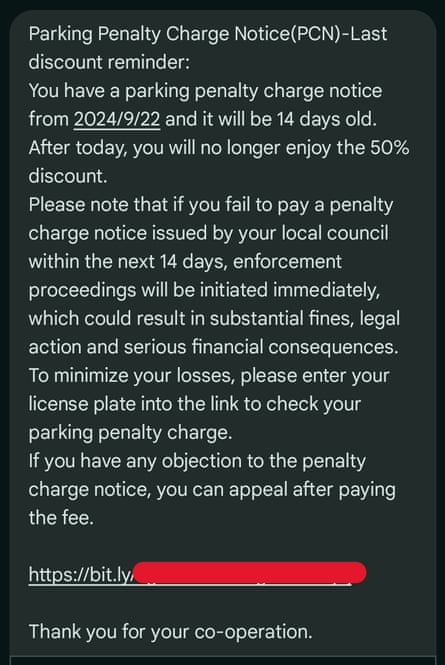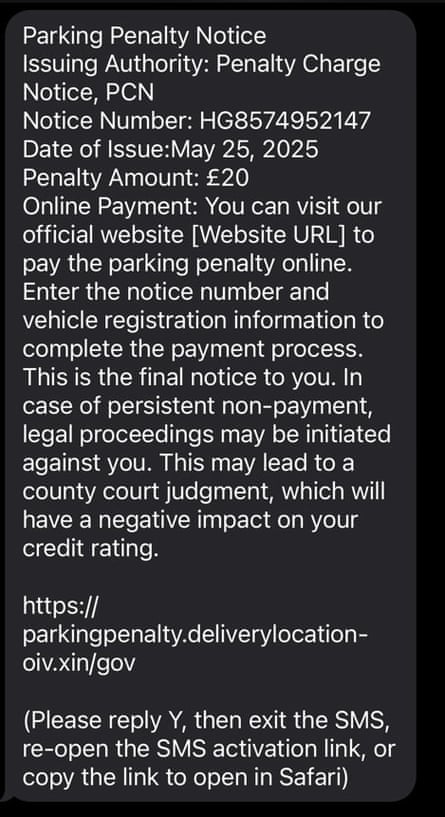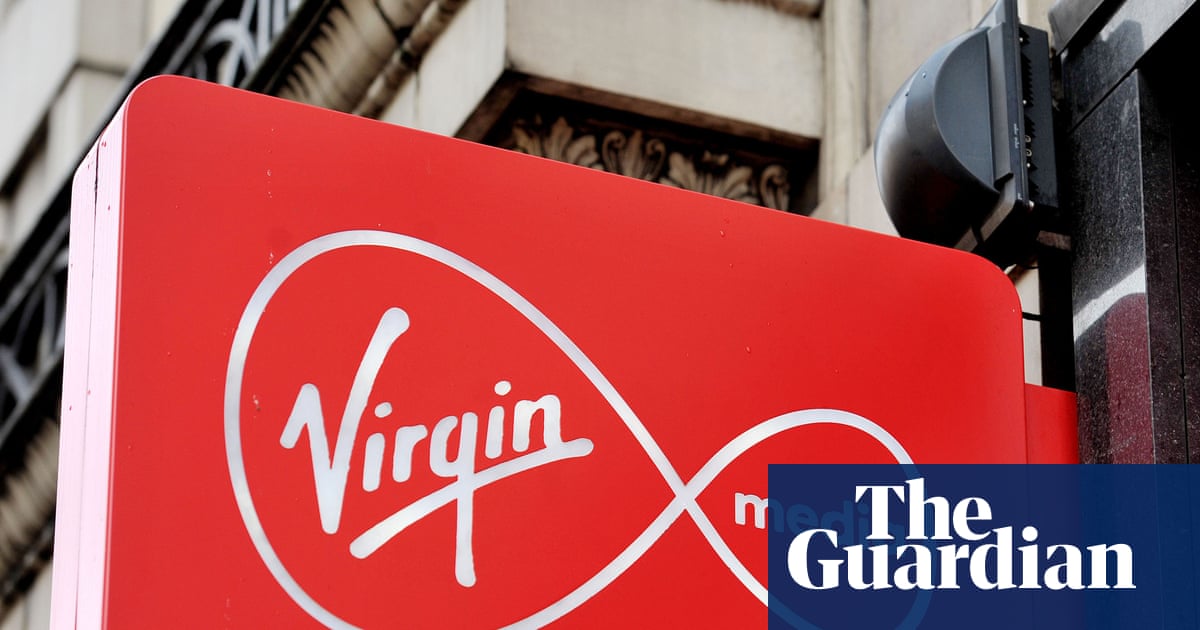The text arrives out of the blue stating you have received a penalty charge notice (PCN) and includes a link to click and pay.
But don’t click through. It is a parking scam that is gaining traction, prompting councils across the country to warn motorists.
Last week, Cheshire West and Chester Council alerted residents to the scam texts, some of which threaten the risk of having your licence suspended, court action or credit score damage if you don’t pay up.
Maria Byrne, the council’s director of environment and communities, said: “Our parking team has recently been made aware of these scams. They may appear urgent or official, but they are not and include a link to a fake payment page.”
Parking tickets can be confusing as the two main types are both abbreviated to PCN. A “penalty charge notice” is usually issued by a council and is for a parking infringement on public land such as a high street or council car park.
Meanwhile, a private parking company or landowner will give you a “parking charge notice”. You might get one, for example, if you parked for too long in a supermarket car park.
The rise in app- and phone-based parking payments – as well as the record numbers of tickets being issued – has opened a new frontier for fraudsters with scams taking multiple forms. These range from fake texts to quishing scams – so called because they are phishing attacks that start with a QR code.
The BBC also recently reported that criminals are targeting people paying for parking at machines with hidden skimming devices attached to the contactless payment reader.
The messages appear to be phishing texts, so even if you have not used a QR code or parking machine, you could still receive one.
What the scam looks like
The texts tend to be written in an official way, mentioning the “issuing authority” and “notice number”. The payment link may ask for your card details and car registration.
Some mention the risk of legal proceedings if you don’t pay. They say this could lead to a county court judgment, the threat being it would have a negative impact on your credit rating.

In common with other councils who have put out statements warning residents, Cheshire West and Chester Council says it would never send out PCNs for a parking contravention by text. It says genuine PCNs are issued as physical tickets attached to your vehicle windscreen or sent by post.
There have also been reports of scam texts being sent to drivers that purport to be from the Driver and Vehicle Standards Agency (DVSA). The DVSA does not deal with parking fines.

What to do
For starters always check the sender: official messages from a parking provider or local authority will come from verified sources.
Look closely at the link you have been sent. Scam giveaways include weird URLs and bad spelling. Check that the URL includes HTTPS, rather than HTTP, before handing over details.
Genuine parking notices will always include your vehicle registration, the time of the offence and the location of the infringement. If it doesn’t have these three things then it is a scam.
If you receive a text that looks suspicious, do not click on any links or input any personal or financial information. The British Parking Association (BPA) advises that you log into the parking app account if you have one, or contact the local authority directly to verify the claim.
If you have clicked on a suspicious link, restart you device as a lot of the links allow a scammer to gain remote access to it. If you restart your phone it will kill the connection.
If you’ve filled in your bank details on the link make sure you change your account password. If you handed over money you should inform your bank’s fraud department about the message, the link and what information you gave.
It is also worth forwarding the text to 7726 which is a free spam-reporting service. Then delete it.
The BPA adds: “Real PCNs are on physical paper and always include instructions on how to pay or appeal it!”

 2 months ago
53
2 months ago
53

















































